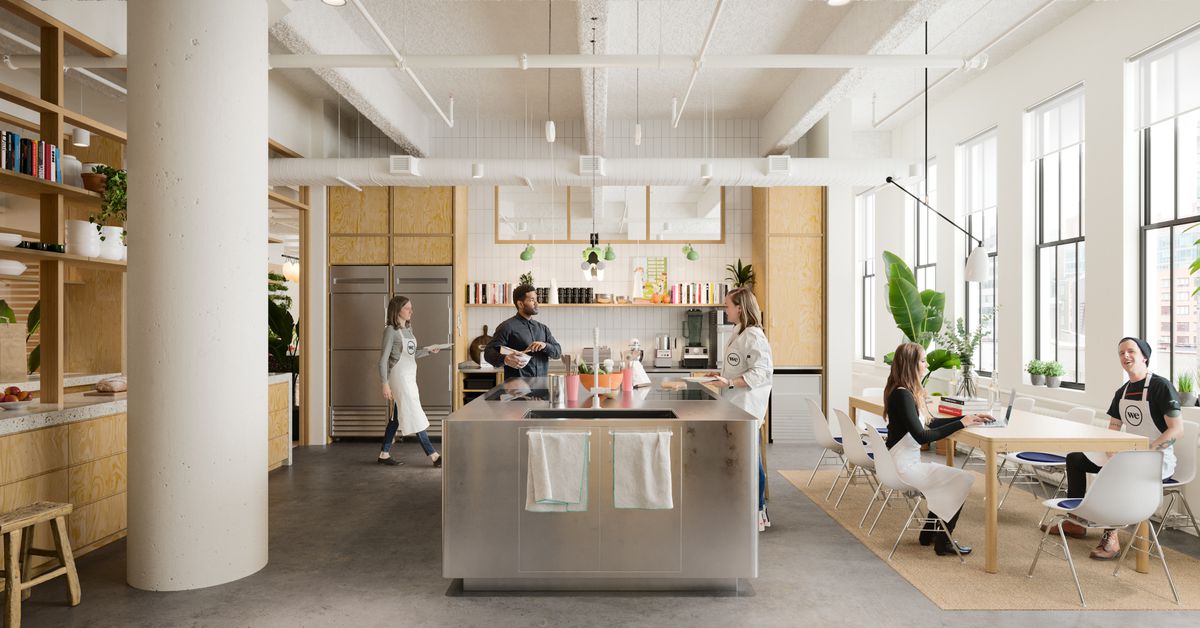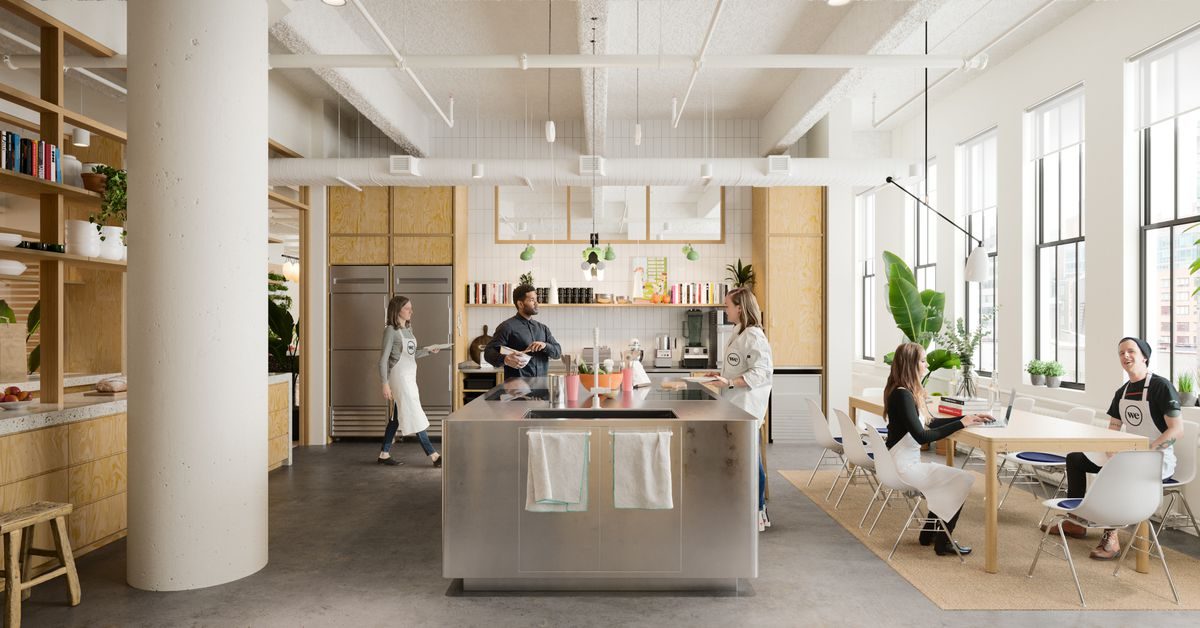
WeWork — the chain of coworking spaces that famously offered complimentary fresh fruit water, coffee, and ping-pong to freelancers on its way to a $45 billion valuation — now wants to reach people outside the workplace. In January, it announced that, after conquering the market in office real estate, it was rebranding to “The We Company” and splitting into three divisions: office-centric WeWork, residential WeLive, and education-focused WeGrow. Its first retail concept, Made by We, debuted as a hybrid coworking space, cafe, and store earlier this year. And WeWork Labs, the arm acts as a startup accelerator, allows the company to invest in businesses across sectors. Now, that includes food.
The massive coworking company is launching WeWork Food Labs, a food-centric coworking space and innovation lab that will contribute $1 million in equity investments to a cohort of startups. Similar to the now-defunct Pilotworks, the Food Labs space in New York City’s Chelsea neighborhood is designed specifically for people working in food and includes areas for R&D and merchandising, a food pantry, and a large event space. The facility doesn’t include a commercial kitchen, though according to Roee Adler, the global head of WeWork Lab, WeWork will be able to help members gain access to kitchens at a discount should they need it. It expects to fill the new Food Lab with around 60 paid members.
Adler says events will be central to WeWork Food Labs, allowing members to get feedback from the wider WeWork community as well as the Food Labs advisory board, which includes By Chloe founder Samantha Wasser and New York University professor and food scholar Marion Nestle.
For the accelerator program, Adler says WeWork isn’t looking for the next big food brand, though edible products are certainly welcome. Instead, it hopes the companies will find solutions to the industry’s myriad problems, whether it’s a new software that helps farmers or a delivery and procurement system that assists corporations with sustainability.
“One of the most interesting areas of innovation in the world today is food, and we are uniquely positioned to support the next generation of food and agriculture startups,” Adler says. “We believe that by creating a space for the most inspirational innovators and inventors to come together, we can help them make their mark on the world while also helping us invent our own future.” Around 10 startups will ultimately receive $1 million in equity investments.
This isn’t the first time WeWork has demonstrated an interest in the link between food and sustainability. In July, WeWork announced it would no longer serve meat or poultry at company events, nor would it reimburse employees who attempted to expense meaty meals, in an effort to reduce the company’s environmental impact. At the time, WeWork co-founder claimed the company would save the lives of “over 15 million animals by 2023 by eliminating meat at our events.”
Adler says that while there are no bounds on startups welcome to apply to the program, he is particularly interested in corporate consumption. “The world’s largest companies are also significant players when it comes to both environmental footprint and food consumption, so we want to take as wide an approach as possible,” he says. He’s also interested in farming innovations “and creating a world where fresh vegetables are fundamentally cheaper than other kinds of products.”
Although the Food Labs flagship location doesn’t open until later this year, it begins accepting paid members this spring. Applications for the first Food Lab cohort are open now.

